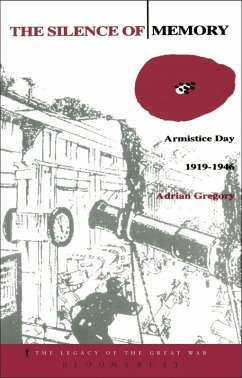This book examines how the British people came to terms with the massive trauma of the First World War. Although the literary memory of the war has often been discussed, little has been written on the public ceremonies on and around 11 November which dominated the public memory of the war in the inter-war years. This book aims to remedy the deficiency by showing the pre-eminence of Armistice Day, both in reflecting what people felt about the war and in shaping their memories of it. It shows that this memory was complex rather than simple and that it was continually contested. Finally it seeks to examine the impact of the Second World War on the memory of the First and to show how difficult it is to recapture the idealistic assumptions of a world that believed it had experienced 'the war to end all wars'.


